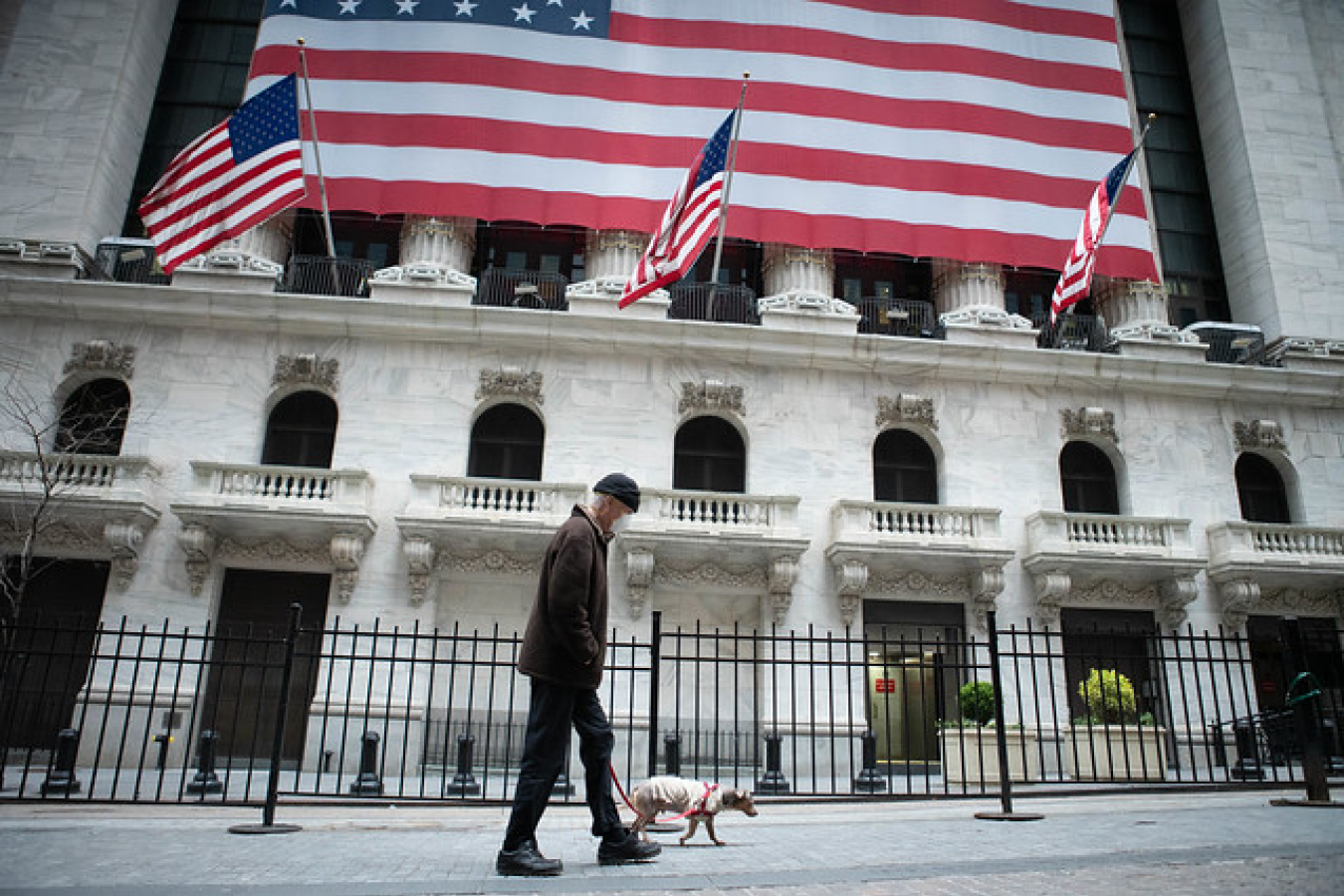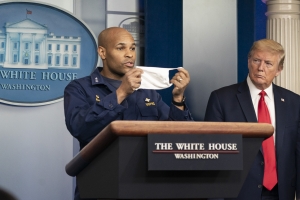Support migrant centric journalism today and donate

Sanwar Ali comment:
6,300 undocumented migrants were expelled on the Mexico border using emergency powers granted due to coronavirus. Working migrants, many on H1B visas are also suffering.
If you lose your job due to coronavirus then you have to find another job reasonably quickly. During the pandemic finding another job is difficult. Usually, there is a sixty day grace period during which time you need to apply for another visa or leave the US. Another problem is that due to coronavirus COVID-19 there is a shortage of flights. If there are flights available they may be very expensive.
The US has been badly affected by the coronavirus. America now has the world’s highest number of COVID-19 infections and the highest number of deaths. More than 500,000 people are reported to be suffering from the disease, while the fatality rate recently exceeded 20,000.
The economy has also been hit hard with many businesses forced to close and unemployment levels soaring. Some of the worst affected by the coronavirus crisis have been America’s working immigrant community, those employing them and international students studying at US universities.
The status of many H1B visa holders, L1 visa holders and international students has been thrown into disarray as business and university closures, combined with travel restrictions, cause uncertainty.
H1B visa and L1 visa holders
H1B visa holders and those with an L1 visa find themselves in a particularly tough situation, according to a report published by Forbes. Under the Trump administration, the denial rate for H1B visas has reached record highs, which raises major immigration issues for those who have had an H1B visa application rejected, especially if they’re an existing H1B employee.
Under existing US immigration rules, an H1B visa is initially valid for three years, with the option to extend by a further three years. To apply for a visa extension an H1B employee would typically need to leave the country to reapply.
However, according to Lynden Melmed, a former adviser to United States Citizenship and Immigration Services (USCIS), many employers are prohibiting domestic and international travel, while the US government is also dissuading people from traveling to certain countries.
This causes an issue because if an H1B visa petition is denied, then a H1B employee will be violating US immigration laws if they remain in the country. It’s a similar scenario for L1 visa holders also.
In this situation, USCIS being urged to extend H1B and L1 visas for employees already in the US, unless they have seriously violated any US laws.
Companies are also calling on USCIS to make it easier for them to reapply, without forcing an employee to leave the United States. The government of India recently urged the Trump administration to extend the H1B visa of Indian nationals until the coronavirus crisis is over.
One measure that has been put in place by USCIS amid the coronavirus is the suspension of site visits for businesses that have closed due to the pandemic, a move that has been welcomed by company owners.
Concerns over remote work for US visa holders
A key concern for companies employing foreign nationals, along with H1B visa holders and those with an L1 visa, is how remote working will affect the terms of their visa sponsorship or US immigration status. However, USCIS has moved to reassure employers and employees that no amended labor condition application (LCA) will be necessary.
This is on the condition that an employee continues to work in the same capacity, and within a normal commuting distance of their typical day-to-day workplace, as stated on the original H1B or L1 visa petition and LCA.
Under guidance issued by USCIS, provided that an employee is working from home in roughly the same capacity as they would be on site, then no amended petition is necessary.
L1 visa for Transferring staff
Transferring staff from overseas to a branch in the US using the L1 intracompany transfer visa has also become problematic for employers and employees amid coronavirus.
With most US Consulates and Embassies around the world cancelling immigrant and nonimmigrant visa appointments from March 16 until further notice, US companies may need to rely on USCIS processing until Consulate and Embassy appointment services resume.
F1 visa international students
In a recent statement made by Immigration and Customs Enforcement (ICE), the agency said: “It is important that F and M students maintain their nonimmigrant student status, even during emergency events.”
ICE urged students to maintain practical training agreements by ‘working with employers.’ The agency said: “Changes to workplace requirements may impact nonimmigrant students engaging in practical training.”
“SEVP [Student and Exchange Visitor Program] encourages such students to consult with their employer to seek alternative ways to maintain training agreements, such as teleworking or other arrangements,” ICE added.
ICE stated that amid the coronavirus it ‘intends to be flexible with international students and universities.’ In a message issued on March 9, 2020, the agency said: “SEVP recognizes that the COVID-19 crisis is fluid and rapidly changing. For that reason, SEVP is not requiring prior notice of procedural adaptations, leaving room for schools to comply with state or local health emergency declarations.”
However, the agency did stress that procedural adaptations must be reported to SEVP within 10 business days of any changes made. ICE said: “This guidance applies to students who are currently enrolled in a program of study and is not intended for new or initial students who are outside the United States.”
I-9 employee verification for visa purposes
As coronavirus guidance issued by the government developed, on March 20, 2020 the Department of Homeland Security (DHS) announced that requirements relating to Form I-9 would be flexible for the foreseeable future.
The DHS announcement states that “in the event of an employer being forced to shut down onsite operations due to coronavirus, employers will be permitted to inspect Section 2 documents, specific to employees, on a remote basis. Verification can be carried out by video link, fax, and email - or by other similar means.”
The agency did stress that employers must keep a copy of all documents, which will need to be inspected remotely within three business days of the first day an employee commences work.
The DHS announcement added: “Within 3 business days of normal operations resuming, employers will need to physically inspect the original documentation.
“Employers will then specifically note in the ‘Additional Information’ field in Section 2 of the I-9 that ‘documents physically examined’ with the applicable date of inspection, and include ‘COVID-19’ as the reason for the physical inspection delay in the Section 2. The same procedures are applicable for re-verifications of documents at Section 3 of the I-9.”
According to the DHS, the remote verification of documentation only applies to employers and workplaces currently operating on a remote basis. If an employee continues to be in attendance onsite, DHS guidance states that there are no exceptions to verifying an employee’s identity and right to work in the US, in person.
However, the DHS said that in the event of a newly hired or existing employee being subject to lockdown or quarantine protocols, such circumstances would be reviewed on a case-by-case basis.
Employers should be aware that the DHS is only allowing remote verification ‘as a matter of prosecutorial discretion’, according to the Forbes report. Employers who choose to verify an employee’s identity and right to work in the US remotely must provide a written account of their remote on-boarding process and telework policy for every employee.
DHS states that this burden is solely that of the employer, while adding that any new employee may still be required to complete Section 1 of Form I-9 remotely and assign a third party as an employer’s authorized agent to verify the original documents and complete Section 2 of Form I-9.
ICE Notice of Inspection
As of March 19, 2020 the DHS announced that any employer served an ICE Notice of Inspection requesting Form I-9s for March 2020, and has not yet responded to the request, will be automatically granted a 60-day extension from the effective dates.
Upon the expiration of the 60-day extension period, the DHS will consider whether any additional extension will be granted. The DHS has said that it will continually review the coronavirus situation and provide updated guidance where necessary.
US has highest number of Coronavirus cases in World
Reported coronavirus cases in the US stand at 561,103 as of April 13. 41,730 people have recovered from the disease, while 22,106 have sadly died. New York has been the worst hit state, with a reported 188,694 cases and 9,385 deaths.
Widespread reports claim that President Donald Trump will lift lockdown restrictions by early May, though many health professionals have advised against this. Trump has been slammed for what many have described as a ‘woefully inadequate’ response to the coronavirus, which amounts to irresponsibility.
During the early weeks of the coronavirus outbreak in the US, Trump described the disease as a ‘Democratic hoax.’ Just a few weeks after making this statement at a rally on February 28, he has since declared a national state of emergency.
Latest coronavirus updates, visa and immigration restrictions
For the latest updates on the coronavirus, plus details of visa and immigration restrictions worldwide, check Workpermit.com’s news section to stay informed.
Workpermit.com can help with US employment-based visas
If you would like to apply for a US work visa – including L1 visas, E1 and E2 visas, B1 in lieu of H1B visas and H1B visas - Workpermit.com can help.
Workpermit.com is a specialist visa consultancy with over thirty years of experience dealing with visa applications. We can help with a wide range of visa applications to your country of choice. Contact us for further details. You can also telephone 0344 991 9222.





















